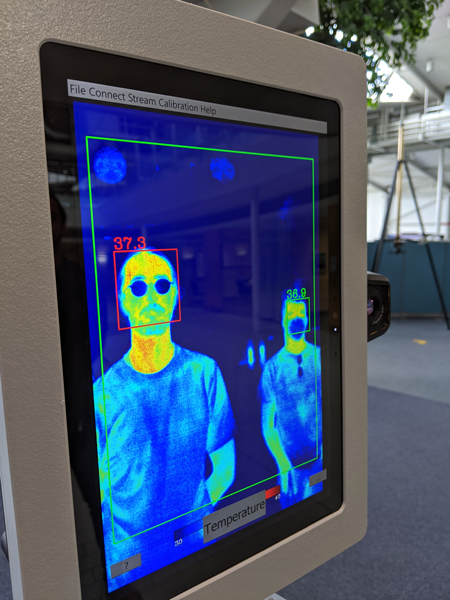 In a world post-Covid-19 and post-Brexit economy, innovation will be essential if the UK wants to maintain its competitive edge writes CTO of Thales in the UK, Dr Paul Gosling.
In a world post-Covid-19 and post-Brexit economy, innovation will be essential if the UK wants to maintain its competitive edge writes CTO of Thales in the UK, Dr Paul Gosling.
In these exceptionally uncertain times, we all have to accept that the world, and the way in which people work and live together, has changed forever. A business’ ability to innovate, particularly for those in the manufacturing sector, will be the driving force that creates and identifies opportunities in crisis and leads to economic growth.
But for many companies the current focus is on invention and step improvement, rather than true innovation, and the need to look at the short-term gain. This philosophy can back companies into a corner because the moment someone invents something better, they’ve lost their revenue stream. Instead, businesses should be looking to innovate and position themselves to adapt to the changing socio-economic dynamics. An agile and innovative company will always be ahead of the curve. So, in an increasingly complex time, when businesses are just trying to survive, how do organisations innovate to keep ahead?
Driving innovation in the face of potential lockdown
The key to innovation is mentality. Even during tough times like these, companies must continue to look for the opportunities to push their business on, particularly when others or the rest of their industry is hunkering down. The first step towards achieving innovation is to create a culture that encourages creativity and free-thinking. A culture that doesn’t heap scorn on ‘whacky’ ideas. Innovation depends on the will to change and change can be uncomfortable.
There is a moral responsibility in times of crisis to share expertise and resource
That’s been seen this year in the move to widespread remote working. While businesses already had the tools to collaborate outside the office and bounce ideas around – from Zoom to Teams, Skype and file sharing – they were never really needed to any extent. But now that’s all changed. Companies have successfully adopted new ways of working and that could be good for innovation. Being forced to think outside the box in an unfamiliar environment can spark new ideas as people connect in an entirely different manner. It’s a radical shake-up to the system and one that’s been shown to work. Sometimes it takes companies being forced to change to show them that they could, but the best take leaps before they’re pushed.
Social responsibility in an international pandemic
These radical shake ups though don’t just lead to every company fighting for themselves in a winner takes all format. They can lead to a created sense of social responsibility as businesses come together to use their expertise for the greater good. Working with Queen Elizabeth Hospital in Glasgow, Thales fitted thermal cameras with artificial intelligence to detect symptoms of Covid-19. Unlike other systems, it has the accuracy to differentiate between genuine symptoms and instances where people are just hot and sweaty.

Even if businesses aren’t going to manufacture a particular piece of equipment, there is a moral responsibility in times of crisis to share expertise and resources with people who do – and there has been some fantastic collaborations. From Chinese and Australian researchers working together to publish the first genome of the Covid-19 virus, to scientists in Senegal sharing information with the British biotechnology firm, Mologic, to develop a new form of rapid test kits to be distributed across Africa.
Earlier this year, Thales worked with the VentilatorChallengeUK consortium as part of a response to an urgent request for more ventilators at the start of the pandemic. While Thales doesn’t make ventilators, it does know about manufacturing to critical requirements. By sharing this expertise through a form of digital training that is ordinarily reserved for our military customers, production increased from less than 50 ventilators per week to more than 1,000.
It’s important to remember that businesses can learn more and faster when working together, and teaming up for the greater good is not only an imperative for social responsibility, but can lead to innovation companies could only dream of. Sharing knowledge and capabilities can result in creations not possible by one business operating alone. The pandemic is underscoring this critical role of collaboration and shows that innovation doesn’t have to be the dog eat dog contest many think it does.
Filling the innovation pipeline
Among the twin challenges of a post-Brexit economy and world post-Covid-19, businesses that innovate – both in terms of their products and services and how they operate – will be the ones that survive. Whether in collaboration with others or going it alone, the ability to adapt and evolve, rather than focusing on those short term invention goals, will be the driver for long term economic recovery and future prosperity.
Paul Gosling is the Chief Technology Officer for Thales in the UK










McMurtry Spéirling defies gravity using fan downforce
Ground effect fans were banned from competitive motorsport from the end of the 1978 season following the introduction of Gordon Murray's Brabham...